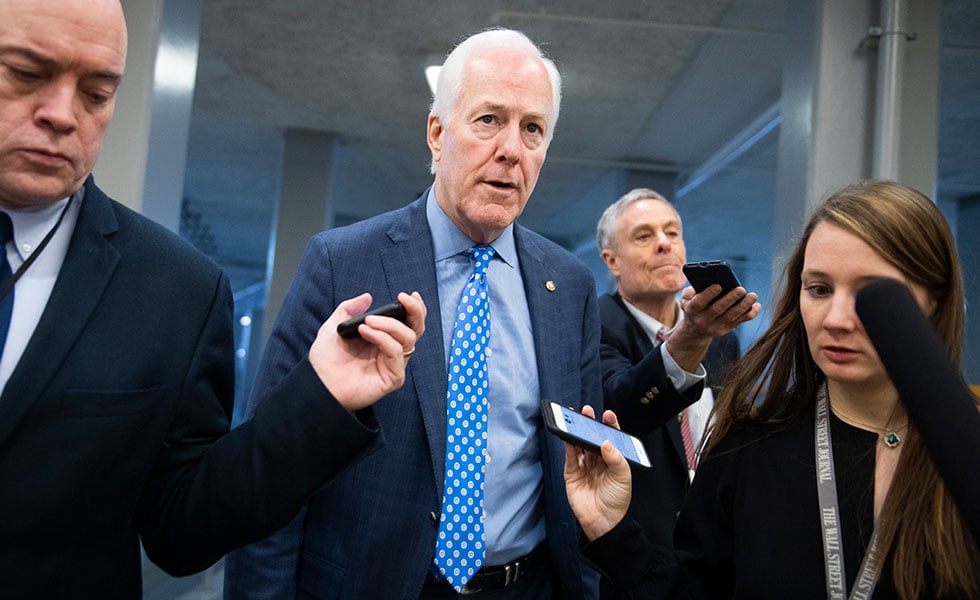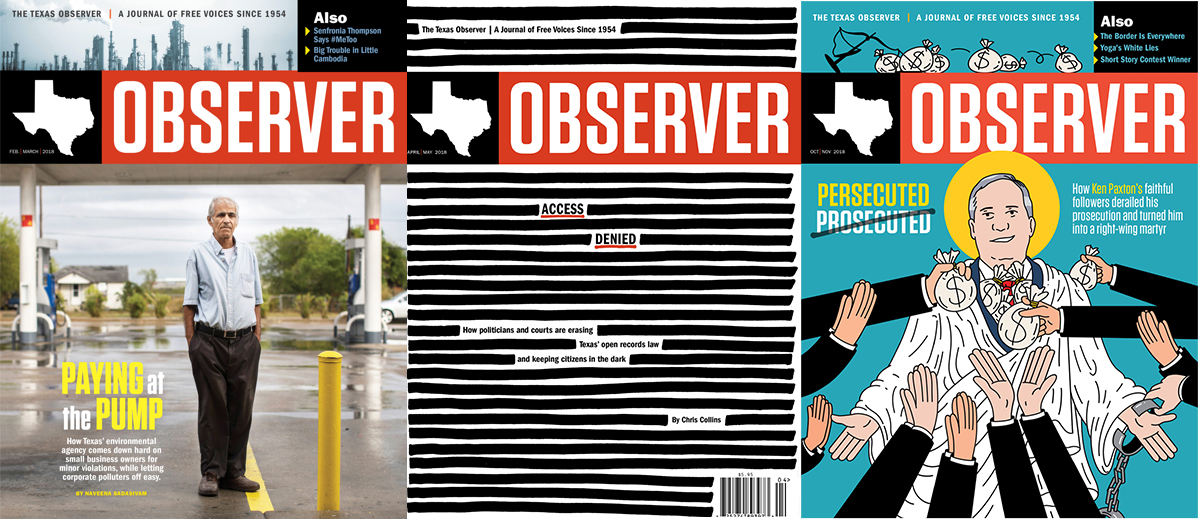
The Texas Observer’s Best Features of 2018
Our favorite longreads of the year.
–
by Rose Cahalan and Forrest Wilder
December 26, 2018
Like children, it’s always dangerous to pick one’s favorite stories. They’re all special and an editor’s affection is elastic, her tastes eclectic. Still, an editor must… edit. What follows is a list of Texas Observer stories that we loved this year. Read together, they show a weird, wild and frustrating Texas that’s changing at a dizzying pace. This was also a year of collaborations (with Quartz, Harper’s Magazine, The Investigative Fund and others) that helped put our stories in the hands of new readers far and wide. Enjoy!
“Stand by Your Man”

As an editor, my interest in this story was simple: Whatever happened to Ken Paxton’s criminal troubles? Like many Texans, I’d simply lost track of the story, even as the state’s top law enforcement officer faced re-election while under indictment. Mike Barajas’ deep dive into the slow-moving Paxton saga exposes the gory details of how the attorney general has avoided any political or criminal repercussions of his alleged felonies. As the nation grapples with how — or whether — to apply the rule of law to venal political actors at the highest levels, “Stand by Your Man” shows how the rich and politically powerful can make their legal woes almost irrelevant. —Forrest Wilder
“Checkpoint Nation”

Co-published with Harper’s Magazine, “Checkpoint Nation” by Melissa del Bosque had its genesis in the aftermath of the 2016 presidential election. Like many New York media outlets, Harper’s was looking for ways to cover quarters of the nation that had been ignored or forgotten by coastal media. The creeping insinuation of Border Patrol into the day-to-day lives of Americans who happen to live in the so-called border zone — which extends up to 100 miles into the interior — was a story that certainly had escaped the notice of most journalists. What made this piece so potent , and at times a difficult read, is the story of Laura Sandoval, a U.S. citizen and El Pasoan who had a horrifying, life-altering encounter with Border Patrol. She shared her story with Melissa for the first time. —Forrest Wilder
“Shallow Waters”
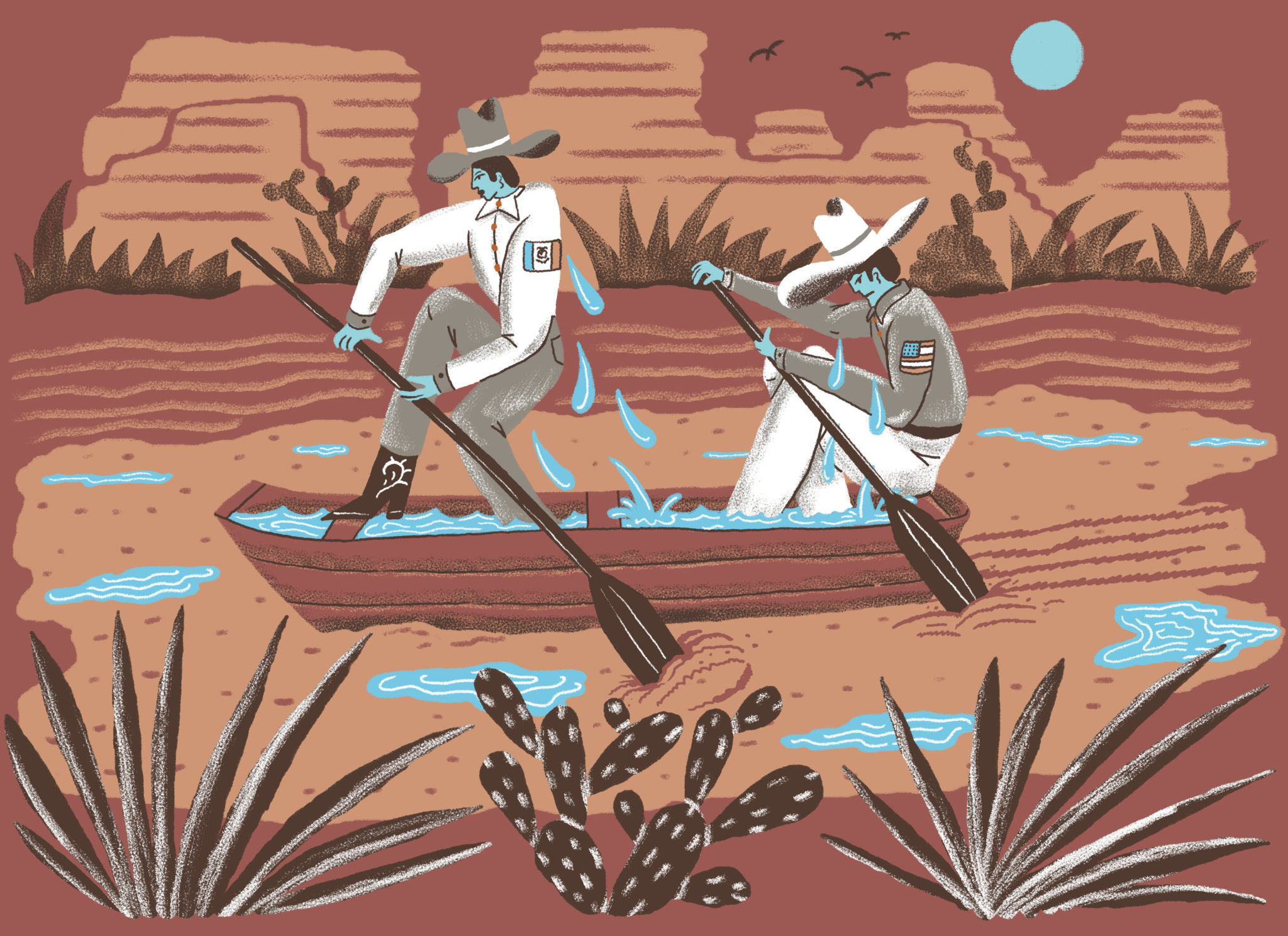
This was one of our most ambitious undertakings this year. We partnered with Quartz to put together a nine-part series on one of the underreported climate stories in Texas: the present and future threat that climate change poses to one of North America’s great rivers, the Rio Grande. To make sense of a complex, sprawling topic, reporters Naveena Sadasivam and Zoë Schlanger focused their energies on the Rio Grande Valley, a booming, predominantly Latino part of Texas that is overwhelmingly dependent on the Rio Grande for drinking water and crop irrigation. What they found is that the region is far from prepared for a hotter, drier future. I’m particularly proud of the gleaming web presentation of this package, an invitation to readers to dive into a subject they may otherwise avoid. —Forrest Wilder
“How Beto Built His Texas-Sized Grassroots Machine”
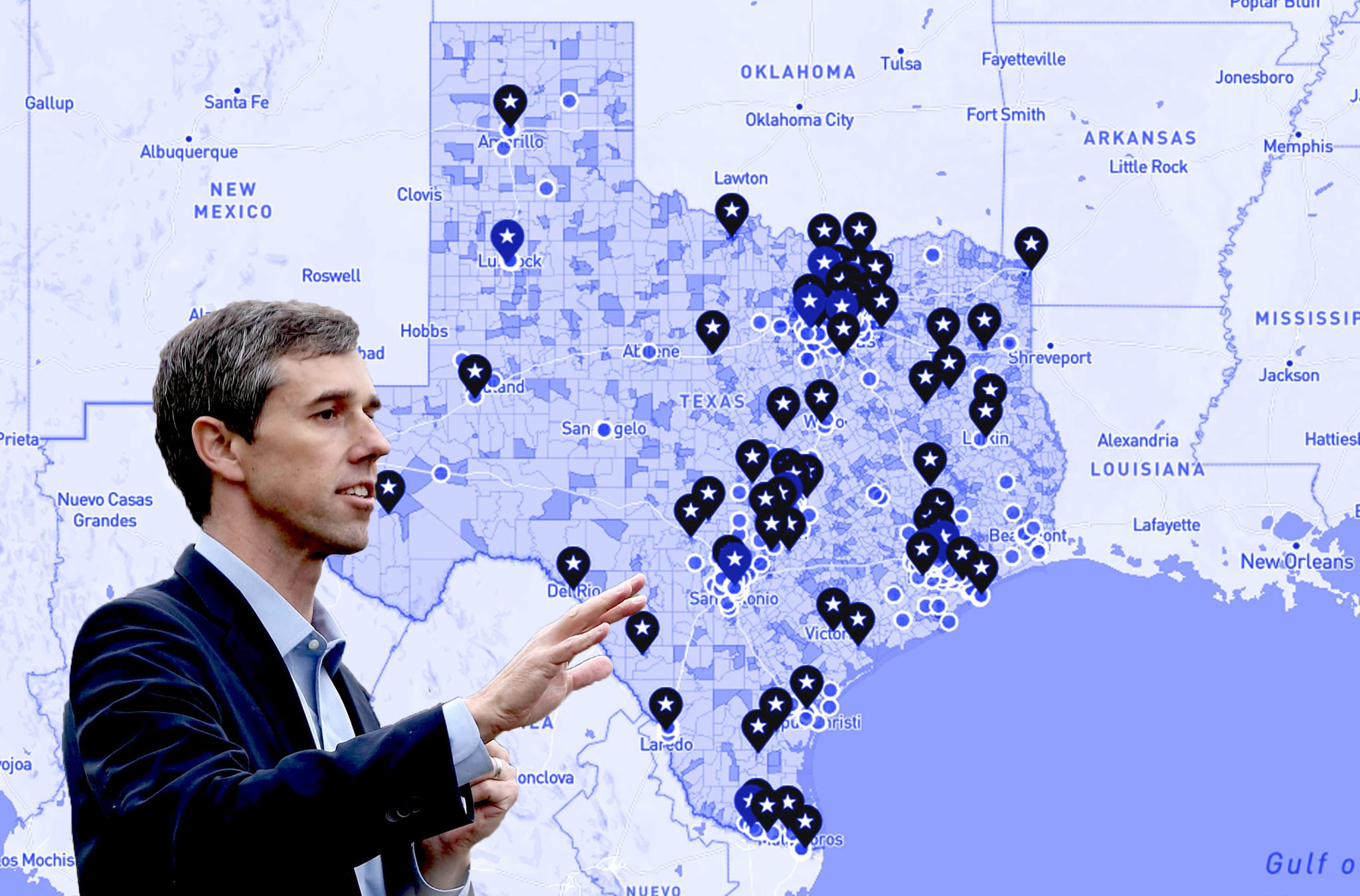
When I hired Justin Miller to be our politics reporter in March, I worried a bit that perhaps my assumption about 2018 was wrong — maybe it wouldn’t be a watershed year in Texas politics, and that Justin would be stuck writing same-as-it-ever-was stories about hapless Democrats and shoo-in Republicans. I’m glad things didn’t turn out that way. Many, many thousands of words were written about Beto O’Rourke and his extraordinary campaign, but I’d put the Observer’s work — primarily written by Justin and Chris Hooks — against anyone else’s. One story that merits re-reading is this piece that delves into the nuts and bolts of what made the Beto campaign such a sensation. While the candidate certainly deserves lots of credit, Justin got the inside story of how the campaign engine was built. —Forrest Wilder
“Wage Wars”
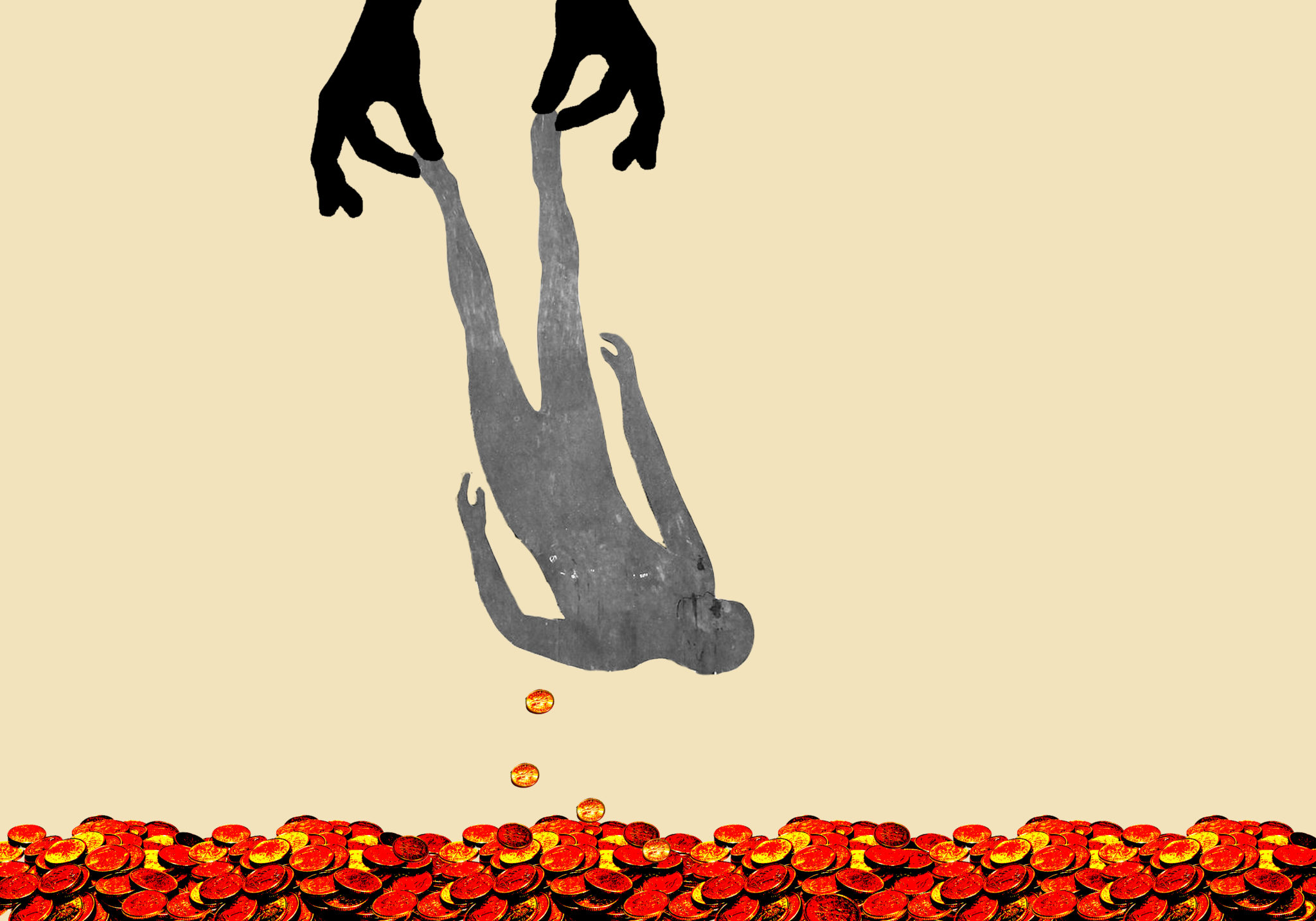
It’s always a pleasure to watch a little idea grow into something big. When Gus Bova started looking into a tip about how unions had helped pass city ordinances cracking down on wage theft, we assumed it would be a short, simple piece. But what he found was something much more interesting: Texas cities had passed well-meaning wage theft laws, but failed to do much of anything to follow through on enforcement. Gus uncovered major gaps in the way cities handle wage theft complaints; he also showed how workers have been abandoned to thieving employers by both the state and their erstwhile allies in municipal government. —Forrest Wilder
“Big Trouble in Little Cambodia”
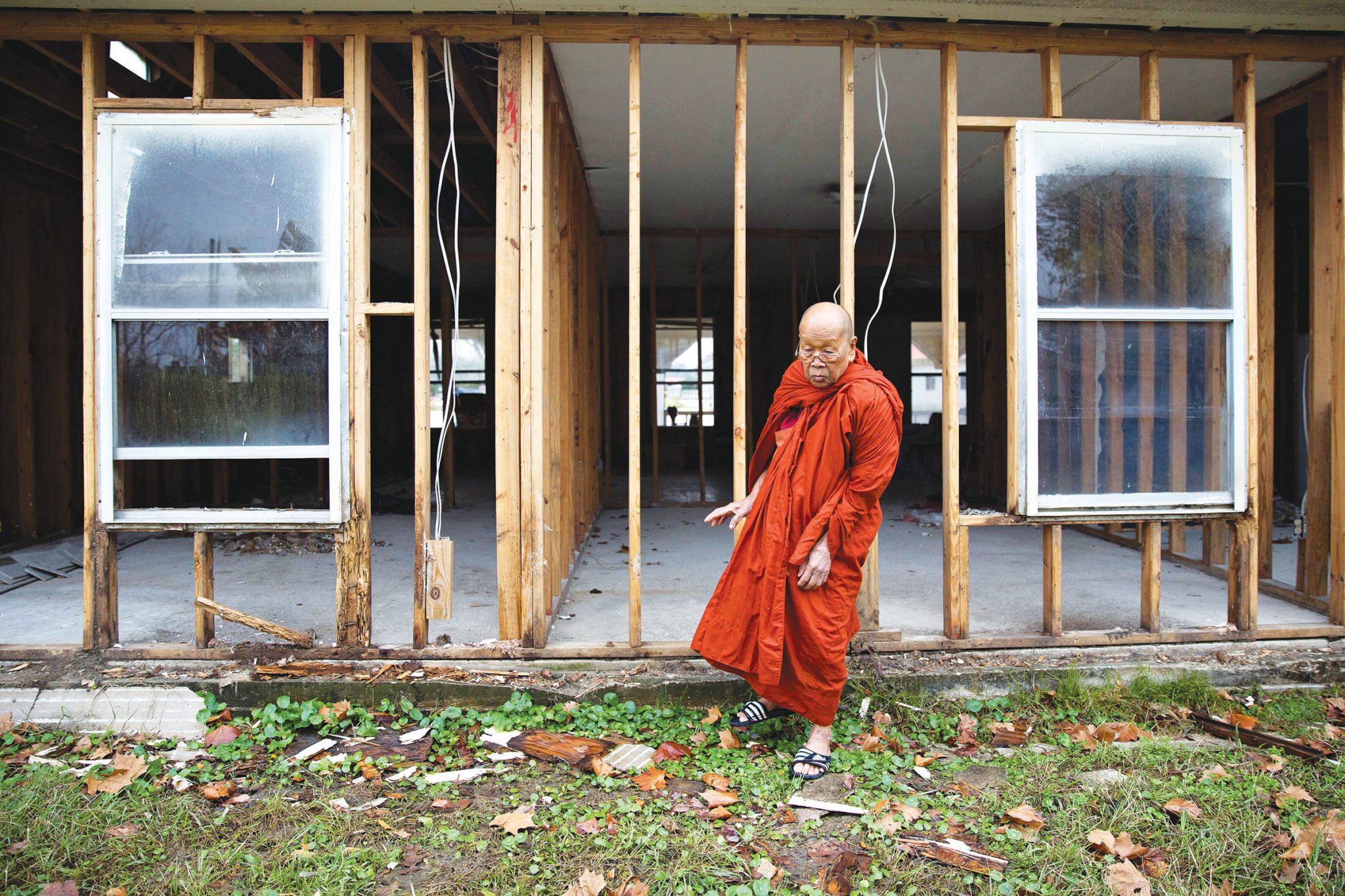
When writer Michael Hardy came to me with this story, it almost seemed too crazy to be true. In the immediate aftermath of Hurricane Harvey, a coalition of far-right groups took control of a Cambodian community outside Houston. Their charismatic, heavily bearded leader, Francis Marion, coordinated water deliveries and helped muck out homes — but also ran FEMA officials and a TV news reporter out of town. Drawing on hours of Facebook Live videos and interviews with all parties, Michael shows how the activists acted out a libertarian fantasy at the expense of desperate residents. After the piece came out, the groups targeted us with threats and an online harassment campaign, but the story was worth it — it was that wild, and that important to tell. —Rose Cahalan
“Access Denied”

Rural reporter Christopher Collins was the perfect person to write this story about the degradation of Texas’ open records law. Before he joined the Observer staff, he was running a blog titled the 1 FOIR a Day project, in which he set out to file a records request every business day for a year — just for fun (and to show how often agencies stymie reporters’ and the public’s requests for information). In this feature, he tackled a challenge we often face at the Observer: how to write about issues that are as important as they are difficult for a general audience to understand, let alone care about. Chris skillfully used the colorful example of Enrique Iglesias’ performance in the McAllen Holiday Parade — three years and a lawsuit later, local taxpayers still don’t know how much they paid the singer — to liven up what could’ve been a wonky story. —Rose Cahalan
“Odd Fish”
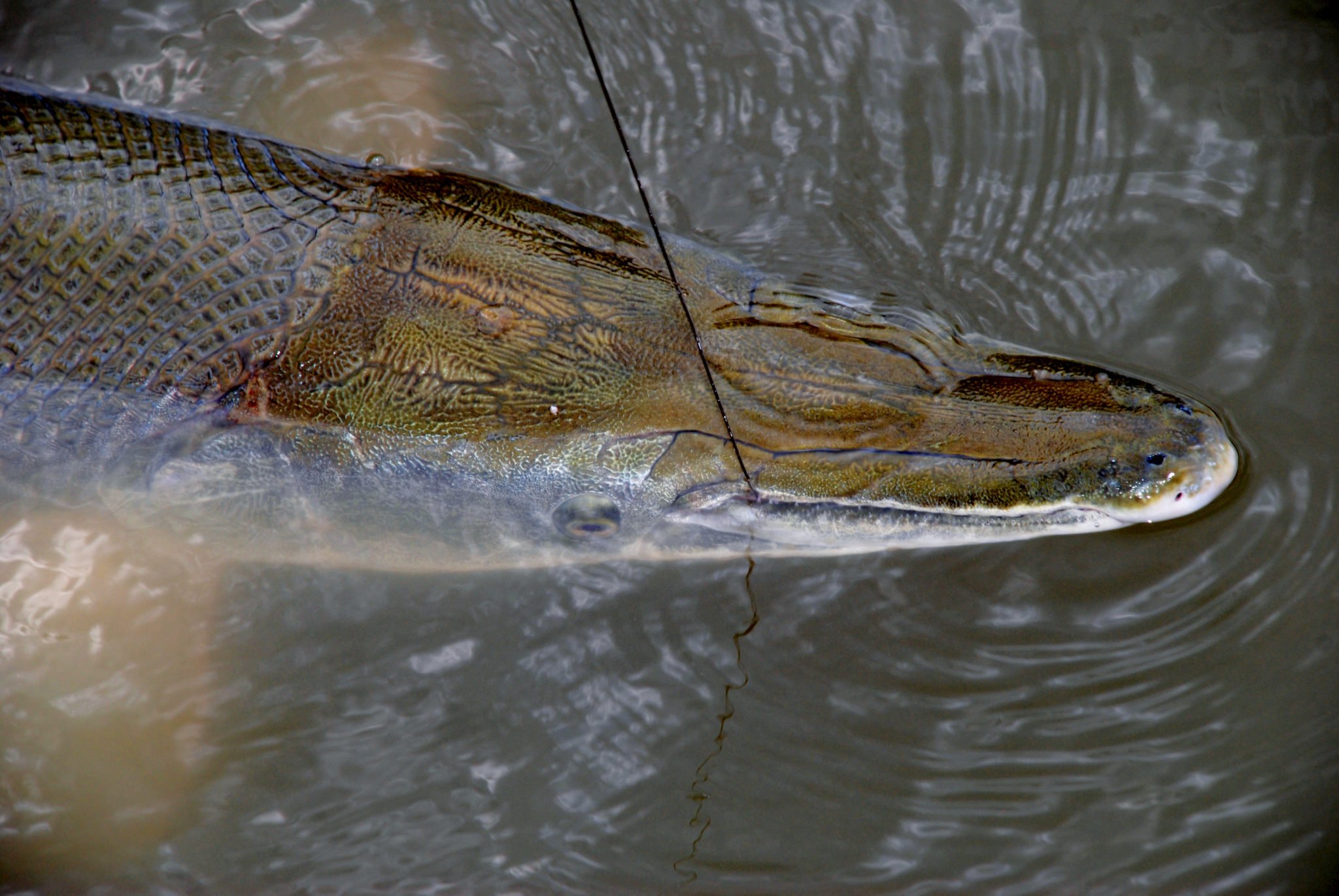
I was surprised and delighted when Asher Elbein’s culture feature on the alligator gar, one of our state’s strangest and oldest fish, became one of our most-read features of the year. I knew the story was excellent, with Asher’s characteristic mix of passionate natural history reporting and poetic flair, but often breaking news and politics get more clicks. Turns out, it found a wide and intrigued audience, renewing my faith in longform’s ability to thrive on the internet. Come for the jaw-dropping photos of this otherworldly creature — stay for Asher’s vivid description of what it’s like to haul a 60-year-old, 7-foot gar into a fishing boat. —Rose Cahalan
“Indoctrinated”
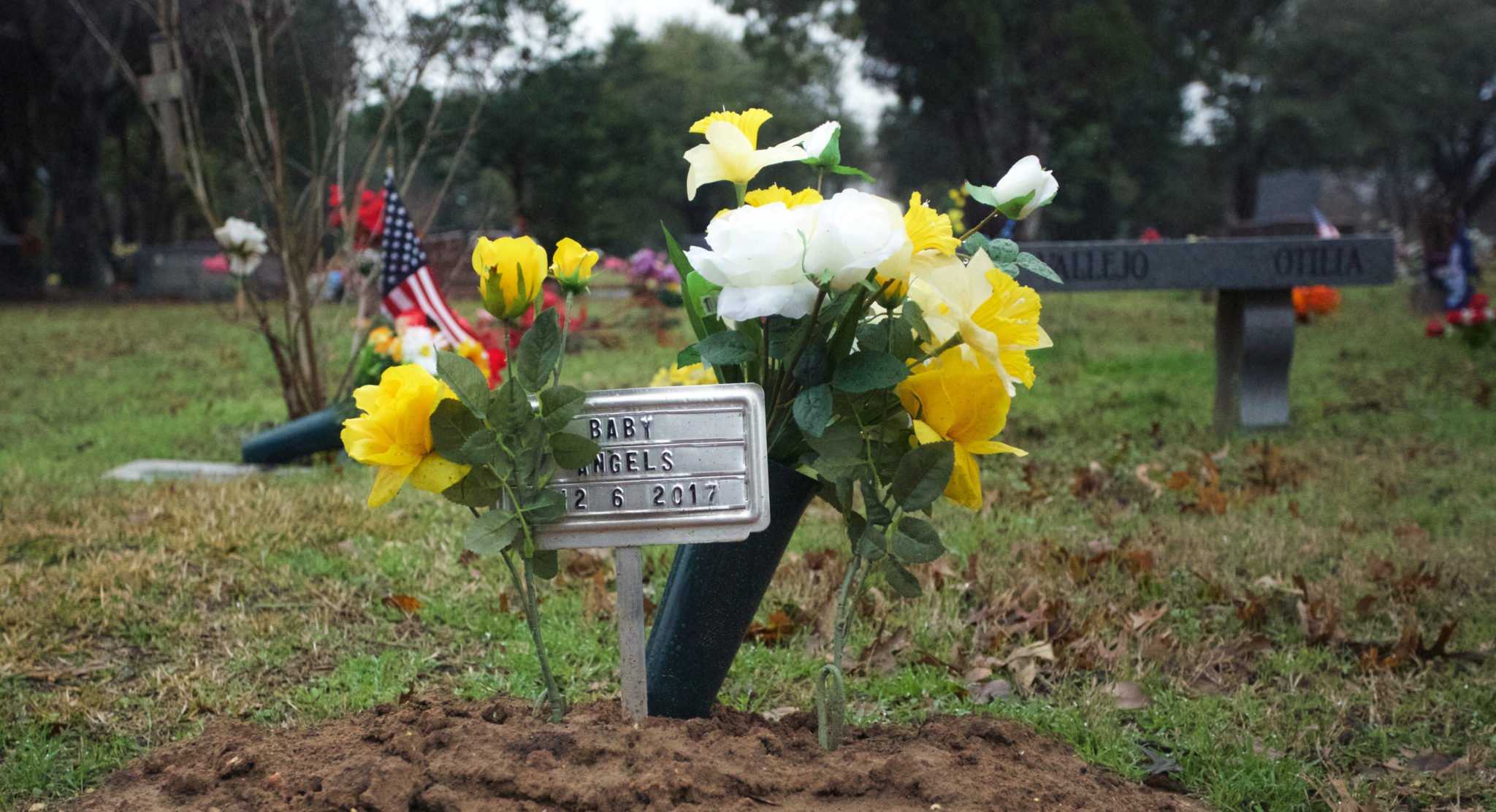
Women who miscarry at Seton Medical Center in Austin are required to have the fetal remains buried in a cemetery — even if it’s against their religious or personal beliefs. Most patients have no idea about the Catholic hospital’s highly unusual policy until a consent form is thrust before them during one of the most difficult moments in their lives. The policy could be a preview of what’s to come for the rest of Texas, since a statewide fetal burial law is currently wending its way through the courts. Sophie Novack told the story of Blake Norton, who described her experience in Austin as “incredibly violating,” with so much quiet power that editing this piece brought me to tears. Norton bravely told her story again in federal court, where a judge blocked the law. —Rose Cahalan
“Port of No Return”

I remember sitting in a hastily called Observer staff meeting as Hurricane Harvey barreled toward the Texas coast. We knew this was going to be a major national story, but what was our role? Reporters working for newspapers, radio stations and TV did amazing work during and immediately after the storm; two of our staff writers even drove a pickup truck and a canoe to Houston to file a few reports. Still, we knew our chance to shine would come much later, after most everyone else had packed up and gone home — and we were right. This immersive feature by Mike Barajas and Sophie Novack shows in devastating detail how the community of Port Arthur has been walloped by storm after storm, and left behind by the broken disaster recovery bureaucracy. —Rose Cahalan

